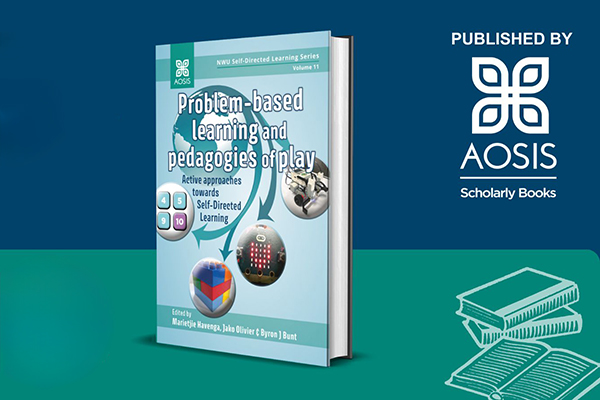As the world undergoes rapid technological and societal transformations, educational institutions face the urgent need to reimagine their teaching and learning methodologies.
In the midst of the Fourth Industrial Revolution (4IR), an online open-access book titled Problem-based Learning and Pedagogies of Play: Active Approaches Towards Self-Directed is Learning explores active learning.
This book, the 11th volume in the North-West University (NWU) Self-Directed Learning Series, was published by the NWU in partnership with AOSIS Scholarly Books, and edited by NWU academics Prof Marietjie Havenga, Prof Jako Olivier, and Dr Byron J. Bunt.
It presents original research on active teaching-learning strategies that nurture self-directed learning, shedding light on innovative approaches such as problem-based learning and pedagogies of play. These approaches have the potential to equip students with the essential skills needed to thrive in the 4IR era.
This publication serves as a guiding light for this transformation, showcasing the efficacy of active engagement in nurturing self-directed learning.
Problem-based learning, a pedagogical approach where students learn by addressing real-world problems, is highlighted as a cornerstone of active learning. Simultaneously, pedagogies of play are presented as an innovative environment where play and learning are seamlessly integrated, fostering self-directed learning among students.
Within the pages of this comprehensive book, readers will delve into various facets of problem-based learning and pedagogies of play, including topics such as metaliteracy, playful Problem-based learning tasks, computational thinking in game-based tasks and geometry, solving puzzles through interactive simulations, applications of LEGO® Six BRICKS, drama as pedagogies of play, and the implementation of educational robotics.
The concept of active learning, which encompasses pedagogies like problem-based, cooperative learning, gamification, role-play, and drama, is emphasised as a pivotal element in enhancing student engagement. The empirical research findings presented within the book aim to inspire educators with active learning approaches that can be applied in both school and tertiary classrooms.
This scholarly work spotlights an array of engaging pedagogies designed to enhance students' skills and readiness for an ever-changing world. As society navigates the challenges and opportunities of the 4IR, the insights into active learning and self-directed learning provided by this book will prove invaluable in equipping the next generation with the skills they need to thrive.

